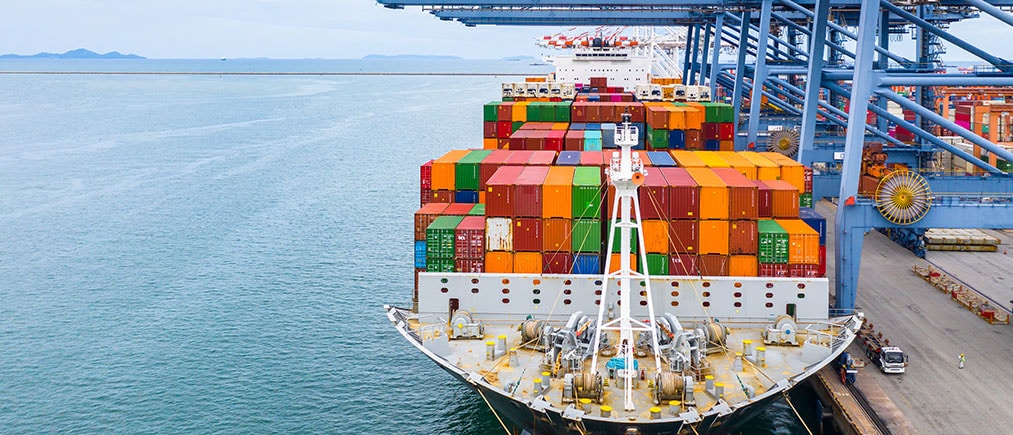Now that the UK has left the European Union, doing business with suppliers and customers on the continent looks very different for SMEs. What do those changes look like? And what remains unaffected by the new regulations? Here, we’ll look at how Brexit has impacted how you do business, and what changes to be aware of to keep trading with companies and customers in the European Union.
What has changed?
1. You’ll now need to complete customs declarations for goods moving between the UK and the EU
“There’s a lot more administration and a lot more thought that’s having to go into actually doing that work,” says Rachel Underhill, a senior business strategy manager at the Institute of Chartered Accountants (ICAEW). Companies importing or exporting to the EU are now required to complete customs declarations for those goods.
Head over to our Brexit check list on customs and declarations for more insights on what businesses can do successfully manage import and export post-Brexit.
2. You’ll need an Economic Operators Registration and Identification (EORI) number
All businesses now need to have an EORI number to import and export good into England, Scotland and Wales. If your goods are going to or coming from Northern Ireland, you need to register on the TSS Trader Support Service and have an XI EORI number. You can apply for an EORI number here.
3. You’ll need to prove the “place of origin” of your goods
Under the terms of the trade agreement, goods moving between the UK and the EU are exempt from tariffs, providing they “originate” in the UK or the EU. This means that businesses must now meet the “rules of origin,” as laid out in the trade agreement. “This can be difficult – it’s very complicated. It requires you to source [a proportion of] your components or ingredients domestically, and then also add value from the process you engage in,” says James Sibley, head of international affairs at the Federation of Small Businesses (FSB).
If your goods do not meet the rules of origin and are subject to duties, Underhill recommends reviewing your supply chains.
4. You must pay VAT on goods imported from the EU and register for VAT in each EU member state that you sell in
As part of the Brexit deal, the UK has left the EU VAT territory, which means that VAT rules for imports from EU countries are now similar to those for imports from non-EU countries.
One change is that you must pay VAT on goods imported from the EU. You can account for import VAT on your VAT return, instead of paying it when your goods enter the country. However, in some circumstances – such as when the value exceeds £135 or if you are selling B2B – different rules on VAT apply. You might find that hiring the expertise of a specialist accountant will be worth the cost to help you navigate the change.
And if the changes are likely to incur additional costs to your customers, keep them in the loop. “A lot of people have been surprised at customers’ reactions to new arrangements because they haven’t necessarily communicated with them properly,” says Sibley.
If you’re exporting goods to the EU or selling services in the EU, you may now be required to register for VAT in each member state that you are selling in.
For more information on the changes to VAT, read our guide here.
5. You will need to make sure that you and your employees have the right to live or travel in the UK and EU
There have been important changes that could impact your employees’ right to work in the UK. Employees who are EU citizens and have been residing in the UK since before 31 December 2020 must apply for the Settled Status Scheme by 30 June 2021. If you want to employ new members of staff who are EU nationals, businesses will now need to apply for a Sponsor Licence and ensure that they meet the government’s new points-based system.
To travel to the EU for business trips, UK nationals can travel for a total of 90 days in any 180-day period without a visa or work permit. Reasons for travel include meetings, attending conferences and market research.
Read more about the changes and the necessary steps you might need to take in our Brexit check list on operations and hiring.
What has stayed the same?
1. Transfer of data between the UK and EU (for now)
GDPR has been incorporated into UK law, so its principles still apply even after leaving the European Union. Any restrictions on the transfer of data between the UK and EU have been delayed until later in 2021 to allow the UK and EU to reach an adequacy agreement. Find out more here.
2. You can still access some of the European funding programmes
UK organisations can still apply to some European funding programmes after Brexit, such as Horizon, the EU’s research and innovation programme. Find out more here.
3. Euro payments between banks in the UK the EU will stay the same
The UK will remain part of the Single Euro Payments Area (SEPA), which allows for simplified international bank transfers of euros. This means that businesses making or receiving payments in euros from other countries in SEPA can continue to do so unaffected.



